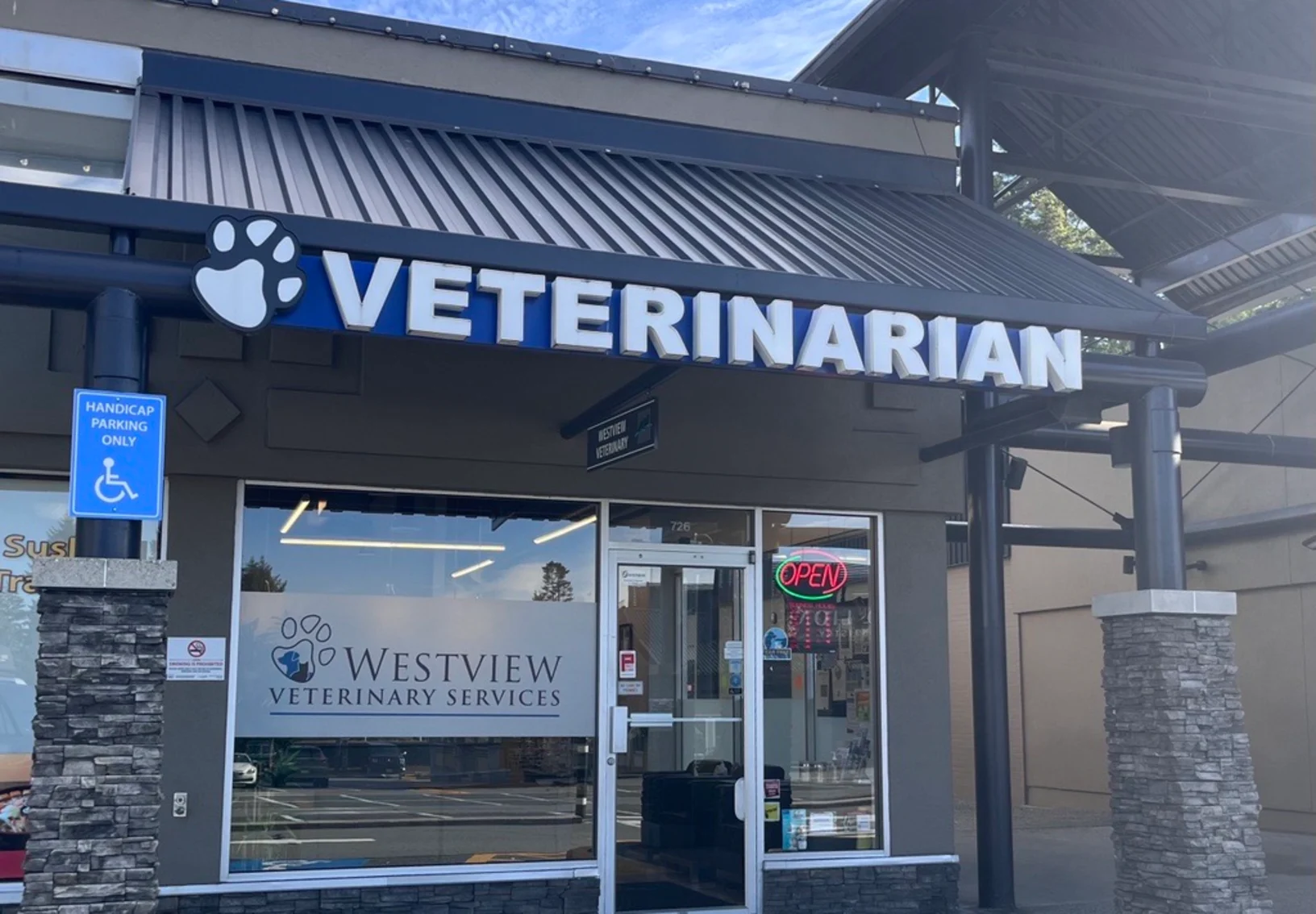Veterinary success stories: heartwarming recoveries
Exactly How a Veterinary Specialty Hospital Can Heal Your Animal's Conditions With Advanced Techniques
Veterinary specialty hospitals play a necessary role in dealing with complicated health problems in pet dogs. They utilize advanced methods and innovations that boost medical diagnosis and treatment. With accessibility to specialized services, pet dog owners can find customized services for their animals' ailments. This increases important inquiries regarding the details techniques utilized and the advantages they offer. Understanding these elements can especially affect a pet dog's healing trip.
Comprehending the Function of Veterinary Specialty Hospitals
Key care vets give necessary solutions for pet health and wellness, veterinary specialty hospitals play an essential function in dealing with intricate medical problems that require innovative diagnostics and treatment. These centers are geared up with specialized innovation and seasoned professionals that concentrate on particular locations of veterinary medication, such as cardiology, neurology, and oncology.
Veterinary specialty hospitals facilitate a collaborative approach, usually functioning in conjunction with a pet's key vet to create thorough treatment plans. They offer access to sophisticated imaging techniques, such as MRI and CT scans, which are not generally available in standard facilities. On top of that, these hospitals offer critical care unit for critically unwell family pets, making certain round-the-clock monitoring and assistance.
Specialized Providers Supplied by Veterinary Specialists
Veterinary professionals supply necessary services that improve animal healthcare, particularly through sophisticated diagnostic imaging techniques. These tools allow precise assessments of intricate medical conditions, causing a lot more effective targeted therapy plans. By incorporating these specialized services, vet hospitals can greatly enhance client results and general health.
Advanced Diagnostic Imaging
Advanced diagnostic imaging plays an important function in modern vet medicine, making it possible for professionals to get thorough insights right into a family pet's health and wellness. Strategies such as X-rays, ultrasound, calculated tomography (CT), and magnetic resonance imaging (MRI) enable veterinarians to picture inner frameworks without invasive treatments - Learn More. These innovative imaging methods aid in diagnosing a range of conditions, from tumors and fractures to body organ abnormalities. By offering clear pictures, they improve the precision of analyses, which is essential for reliable treatment planning. Additionally, specialized veterinary radiologists translate these pictures, guaranteeing that subtle problems are not forgotten. Ultimately, progressed analysis imaging is crucial in delivering substantial treatment, as it permits early discovery and intervention in a pet's medical problems

Targeted Therapy Plans
Targeted treatment strategies are important for addressing the certain health demands of pets, guaranteeing that each pet gets customized treatment customized to its distinct condition. Veterinary professionals develop these plans based on extensive assessments, including innovative analysis imaging and research laboratory examinations. By focusing on the specific animal's medical diagnosis, way of life, age, and type, professionals can prescribe effective therapies, ranging from drug adjustments to surgical treatments. These plans also include follow-up care and checking to track the pet dog's progression and make required adjustments. This method promotes ideal results and enhances the overall lifestyle for animals dealing with complex health and wellness obstacles. Eventually, targeted treatment plans represent a commitment to supplying the greatest requirement of veterinary treatment.
Advanced Diagnostic Techniques for Accurate Diagnoses
As pet dogs face significantly complicated health and wellness obstacles, the integration of innovative analysis strategies has come to be necessary for achieving accurate medical diagnoses. Veterinary specialty hospitals make use of modern imaging technologies, such as MRI and CT checks, to visualize internal frameworks with remarkable clearness. These modalities allow veterinarians to determine irregularities that might not be visible through typical methods.
In addition to imaging, advanced laboratory tests, consisting of hereditary and biomarker evaluations, supply essential insights into hidden conditions. These tests enable vets to identify conditions at earlier phases, assisting in timely intervention. Furthermore, making use of endoscopy permits direct visualization of interior body organs, assisting in the medical diagnosis of breathing and intestinal concerns.
Cutting-edge Therapy Alternatives for Complex Conditions
Ingenious treatment alternatives for intricate problems in family pets have become a vital focus within vet specialty hospitals. Utilizing innovative diagnostic devices, these facilities improve their capacity to recognize issues accurately and customize proper treatments. Veterinary. Additionally, the application of minimally intrusive procedures and progressed recovery strategies uses pets a better opportunity at recovery with decreased pain
Advanced Diagnostic Tools
While the landscape of veterinary medication remains to evolve, cutting-edge diagnostic tools have arised as vital properties for resolving intricate conditions in pet dogs. These sophisticated technologies, including digital imaging, ultrasound, and molecular diagnostics, permit veterinarians to obtain precise details about a family pet's wellness status quickly. As an example, high-resolution imaging strategies can disclose complex details of inner structures, enabling precise assessments of diseases or injuries. Furthermore, hereditary screening gives understandings right into genetic conditions, assisting tailored treatment strategies. By leveraging these innovative diagnostic devices, vet specialty hospitals can enhance their capacity to determine ailments that might have formerly gone undetected. Ultimately, these advancements add to improved results and improve the total top quality of treatment provided to beloved pets.
Minimally Intrusive Procedures
Innovations in veterinary medication have actually paved the way for minimally invasive treatments, which provide new treatment options for intricate problems in animals. These ingenious techniques, such as laparoscopy and endoscopy, allow veterinarians to do surgical treatments with smaller sized cuts, minimizing trauma and recuperation time. By making use of specialized cameras and instruments, veterinarians can detect and treat issues like lumps, food poisonings, and joint issues with accuracy - Learn More. This technique lessens discomfort and causes quicker recovery, enabling family pets to go back to their typical activities faster. Additionally, minimally invasive treatments commonly result in less scarring and a reduced threat of difficulties. As veterinary specialty hospitals take on these advanced methods, family pet owners can feel more certain in their pets' care and overall health
Advanced Rehabilitation Techniques
As veterinary medicine advances, advanced recovery strategies are coming to be necessary for taking care of complex conditions in pet dogs. These techniques include an array of innovative therapy alternatives, consisting of hydrotherapy, laser therapy, and physical therapy. Hydrotherapy uses water resistance to improve mobility and reinforce muscular tissues, valuable for pets recuperating from surgery or injury. Laser treatment promotes recovery by lowering swelling and discomfort, fostering quicker recovery times. Physical therapy employs targeted exercises to boost strength and adaptability, tailored per animal's details needs - Veterinary. In addition, modalities like acupuncture and chiropractic modifications can further support recovery by relieving discomfort and enhancing total wellness. Veterinary specialty hospitals are increasingly integrating these techniques, making certain pets receive detailed care that deals with both psychological and physical recuperation, inevitably enhancing their lifestyle
The Significance of a Multidisciplinary Method
A multidisciplinary approach in veterinary care substantially improves the therapy end results for family pets, as it integrates know-how from various specialties to address intricate wellness problems. This collaborative technique involves veterinarians, specialists, professionals, and support staff functioning with each other to create detailed therapy strategies customized to each pet's unique needs. By incorporating knowledge from fields such as surgery, interior medicine, oncology, and rehab, vets can determine hidden problems that might otherwise go unnoticed.
Additionally, this technique fosters interaction among staff member, making sure that all facets of a pet dog's wellness are considered. A family pet recovering from surgical treatment might benefit from input from both a specialist and a rehab professional, leading to a much more efficient healing procedure. Ultimately, a multidisciplinary method not just boosts the quality of care yet also boosts the total wellness of family pets, offering them with the very best chance for an effective healing and long-term health.
Cutting-Edge Technology in Veterinary Medicine

Telemedicine has actually additionally become a vital source, allowing veterinarians to talk to pet dog proprietors from another location, thus helping with timely interventions. In addition, the combination of synthetic intelligence in evaluating clinical information adds to much more reliable therapy strategies customized to private requirements. Cutting-edge research laboratory tools enables quick blood analysis and pathogen detection, cultivating prompt medical feedbacks. As vet specialty hospitals remain to incorporate these improvements, they not just enhance the high quality of care yet additionally considerably improve the general wellness of animals.
Success Stories: Real-Life Instances of Family Pet Healing
Numerous heartfelt success stories illustrate the amazing recoveries of animals dealt with at vet specialty hospitals. One such instance entailed Bella, a Golden Retriever identified with an extreme orthopedic issue. After advanced surgical treatment and rehab, Bella was not just able to walk once more however also to run joyfully in the park, much to her owners' delight.
An additional motivating tale features Max, a cat with chronic kidney disease. With specialized nutritional management and innovative treatments, Max's problem supported, enabling him to regain his power and cravings. His owners were tickled to see him go back to his playful self.
Luna, a Dachshund who endured a spinal injury, went through sophisticated therapies, leading to an incredible healing. These stories highlight the expertise and empathy located in veterinary specialty hospitals, showcasing their capacity to recover health and wellness and joy to cherished pets and their households.
Frequently Asked Questions
What Should I Anticipate Throughout My Animal's Specialty Consultation?
During a specialized assessment, family pet proprietors can expect a comprehensive examination, thorough clinical history conversations, diagnostic tests, and tailored therapy options. The vet expert will certainly provide understandings and referrals for the pet's particular health and wellness needs.
Just How Can I Locate a Veterinary Specialty Hospital Near Me?
To discover a veterinary specialty hospital close by, one can make use of online internet search engine, examine neighborhood directory sites, or seek suggestions from key vets. Additionally, animal proprietor online forums can offer important understandings and experiences about nearby facilities.
Are Specialty Solutions Covered by Pet Dog Insurance Policy?
Specialty solutions may be covered by animal insurance coverage, but coverage varies by policy. Owners should meticulously evaluate their insurance plan details and consult their copyright to understand the extent of insurance coverage for specialty vet services.
How Much Time Will My Family pet's Treatment Take?

The duration of a pet's treatment can differ significantly, often ranging from a few days to several weeks. Elements influencing this timeline consist of the certain condition, therapy kind, and the animal's general health and wellness and response.
What Are the Costs Linked With Specialty Veterinary Treatment?
The prices related to specialty veterinary treatment can differ extensively, generally ranging from hundreds to thousands of dollars. Elements affecting these costs include the intricacy of the condition, needed treatments, and analysis treatments needed for reliable care.
Veterinary specialty hospitals play a crucial role in attending to complex wellness issues in animals. Key treatment vets offer essential services for pet health, veterinary specialty hospitals play an essential role in attending to complex clinical problems that require sophisticated diagnostics and therapy. Veterinary specialty hospitals help with a collective approach, often working in conjunction with a pet dog's key vet to create thorough care plans. Ingenious therapy alternatives for complex conditions in pet dogs have actually emerged as a vital emphasis within vet specialty hospitals. A multidisciplinary method in vet care greatly improves the treatment results for family pets, as it integrates experience from numerous specializeds to address complicated health and wellness issues.